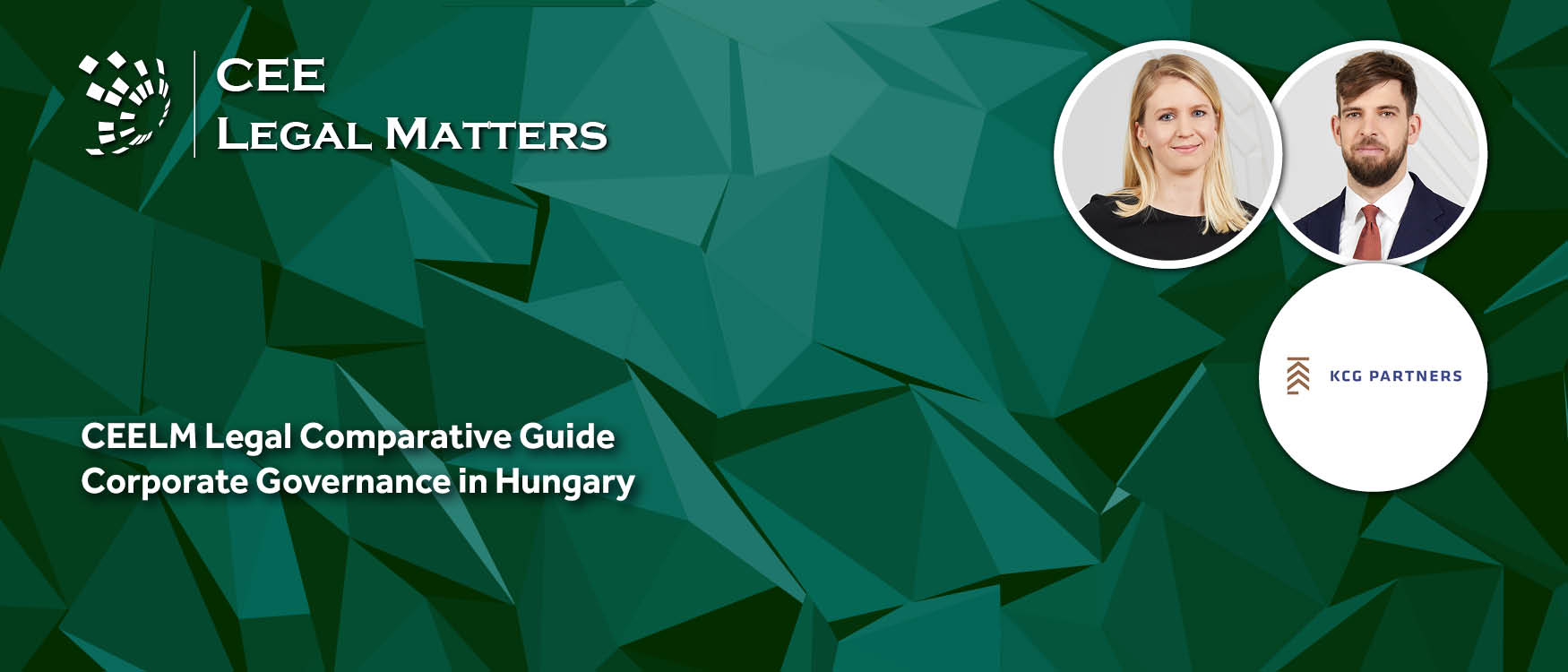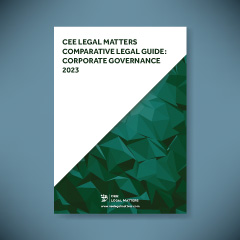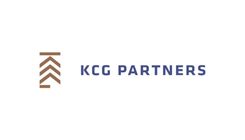Contributed by KCG Partners.
1. Corporate Structure Of The Companies
1.1. General Legal Framework
The supreme body and the executive officer(s) are mandatory for all companies.
The supreme body functions as the decision-making organ of the members of the business association. The principal duty of the supreme body of a business association is to adopt decisions on fundamental business and personnel issues. In single-member companies, the founder or the sole member shall function as the supreme body.
The executive officer(s) shall manage the operations of the business association independently, based on the primacy of the business association’s interests. In this capacity, the executive officer shall discharge their duties in due compliance with the relevant legislation, the articles of association, and the resolutions of the company’s supreme body. The executive officer may not be instructed by the members of the business association (exception: in the case of single-member business associations, the sole member may instruct the management) and their competence may not be negated by the supreme body. Companies limited by shares (reszvenytarsasag (Rt.)) shall be managed by the management board, which is comprised of at least three natural persons.
When it comes to other bodies of the companies, the differences do not come from the size of companies, but from their form.
For example, the establishment of a supervisory board (see below) and a statutory auditor are not always mandatory. All companies limited by shares shall employ an auditor. Public companies limited by shares (Nyrt.) are required to set up audit committees, which shall assist the supervisory board or the board of directors (instead of the executive officer). Where so provided for by the articles of association of private companies limited by shares (Zrt.), the general director shall function as the chief executive officer in exercising the powers of the management board.
Furthermore, the company’s supreme body can provide for the setting up of other organs in addition to the bodies and officers defined in the Civil Code (Act V of 2013 on the Civil Code).
As a general rule, all companies are required to have at least one member. The exceptions are the general partnerships (kozkereseti tarsasag) and the limited partnerships (beteti tarsasag).
If the number of members of a general partnership drops to one, within six months from that time the partnership shall report to the court of registry the admission of a new member to the partnership, or shall resolve the transformation, merger, or dissolution without succession of the partnership.
If the membership of all general partners or all limited partners ceases to exist, within six months from that time the partnership shall report to the court of registry that its memorandum of association was amended so as to reinstate the conditions for functioning as a limited partnership, or that the limited partnership has been converted into a general partnership, or that the transformation, merger, dissolution without succession of the partnership has been resolved.
As a general rule, companies that have a separate legal personality (e.g., a company limited by shares (Rt.) or a limited liability company (Kft.)) shall be liable for their debts with their own assets; members and founders of a company shall not be held liable for the company’s debts.
An exception to the above rule is that in the event of abuse of limited liability on the part of any member or founder of a company, on account of which any outstanding creditors’ claims remain unsatisfied at the time of the company’s dissolution without succession, the member or founder in question shall be subject to unlimited liability for such debts.
Members of a general partnership shall undertake joint and several liability for the partnership’s obligations not covered by the assets of the partnership.
When it comes to limited partnerships the general partner(s) undertake(s) joint and several liability for the partnership’s obligations not covered by the assets of the partnership, while the limited partner(s) is/are not liable for the obligations of the partnership.
There are no specific requirements set by law for a person, to become a shareholder of a company, but the Court of Registration may prohibit a member or officer of a company from practicing if the conditions laid down by law are met. A person subject to a prohibition may not acquire a majority influence in a company, may not become a member of a company with unlimited liability, a member of a sole corporation, or an executive officer of a company.
1.2. The Function of the Supervisory Board
The supervisory board must consist of at least three members. A supervisory board is required in any of the following circumstances: (a) in the case of public companies limited by shares (except if a council of directors is appointed) or (b) in the case of private companies limited by shares, if the shareholders holding together at least 5% of the voting rights so require or (c) the company employs more than 200 full-time employees and the works council did not relinquish the employee participation in the supervisory board. Members of the supervisory board may be natural or legal persons. If the supervisory board member is a legal person, that legal person shall designate a natural person to discharge the functions of the supervisory board member in its name and on its behalf. The rules pertaining to supervisory board members shall apply to the designated person as well. The members of the supervisory board are elected by the members of the company.
The supervisory board shall assess all motions brought before the decision-making body of members or founders, and shall present its opinion thereof at the meeting of the decision-making body.
The supervisory board shall have access to the documents, accounting records and books of the legal person, and shall be entitled to request information from the legal person’s executive officers and employees, and to inspect the legal person’s payment account, cash desk, securities portfolio, inventories and contracts, or to have them inspected by an expert.
If the supervisory board wishes to engage the services of experts in the course of its supervisory activities, management shall fulfill the supervisory board’s request.
If the company has a supervisory board, the supreme body of the company may adopt a decision concerning the financial report in possession of the written report of the supervisory board.
If, in the judgment of the supervisory board, the activity of the management is contrary to the law, to the instrument of constitution, or to the resolutions of the business association’s supreme body, or otherwise infringes upon the interests of the business association, the supervisory board shall have the right to convene the meeting of the business association’s supreme body to discuss that issue and to take the necessary decisions.
It is also possible under the instrument of constitution to establish a “peremptory supervisory body.” In this case, the supervisory board is given responsibility under the instrument of constitution for the taking or approval of decisions that otherwise fall within the competence of the supreme body or management.
Members of the supervisory board are obliged to perform their duties prescribed by the Civil Code. They shall be held liable for damages caused to the legal person resulting from their omission of supervisory responsibilities.
1.3. The Function of the Executive Board
The persons who are elected as managing directors (or members of the management/executive board) represent the company in relation to third parties and have full powers of management. Business associations are represented by their executive officers vis-à-vis third parties and before the court and other authorities. Any restriction of the power of representation vested upon the legal person’s authorized representative shown in the company registry, or rendering such representative’s actions conditional or subject to approval must not be effective towards third parties, except if the third party knew or should have known about the restriction or about the condition or approval requirement and the lack thereof. However, it is also possible to deviate from the general provisions and appoint an executive officer without any power of representation. In this case, it shall be indicated in the company register that the executive officer has no power of representation towards third parties. In practice, this may be a practical solution for Rts, when not all members of the board of directors have the right to represent the company.
As mentioned before, companies limited by shares (Rt.) shall be managed by the management board. The management board represents the company in relation to third parties and has full powers of management. The management board exercises its powers as a corporate body. The management board is comprised of at least three natural persons.
Where so provided for by the articles of association of private companies limited by shares, the general director shall function as the Chief Executive Officer in exercising the powers of the management board.
In addition to the duties assigned to the executive officer, the management board shall prepare a report on the management, the financial situation, and the business policy of the company at least once every year for the general meeting, and at least once every three months for the supervisory board (if the company limited by share has one).
Where the articles of association of a public company limited by shares so provides, the limited company shall be controlled by the board of directors under a one-tier system instead of the management board and the supervisory board. The board of directors shall perform the duties of the management board and the supervisory board conferred upon them by law.
The majority of the board of directors shall be made up of independent persons. A board member shall be considered independent if apart from their seat on the board of directors and apart from any transaction conducted within the company’s usual activities aiming to satisfy the board member’s personal needs, they are not holding any other position.
As far as limited liability companies (Kft.) are concerned, the member’s meeting (as the supreme body) and the management (one or more managing directors) are the main organizational bodies. Those provisions, however, are non-restrictive, i.e., as a general rule, further bodies may also be established within the company. Therefore, in accordance with the Hungarian court practice a management board (or executive board) can be established at limited liability companies (BDT2015. 3272.) as well (not only for public companies limited by shares) that could also include the managing directors as board members (it is recommended to have an odd number of board members for a clear decision-making process).
1.4. Conflicts of Interest and Related Party Transactions
The executive officers may not acquire any share in the capital of a business association – except for the shares of a public company limited by shares – and may not be executive officers in a business association which is engaged in the pursuit of the same economic activity as its main activity, as the business association in which they hold an executive office.
In the event of accepting a new executive office, within 15 days of accepting such office, the executive officer shall notify any other company in which they already serve as an executive officer or a supervisory board member.
With the exception of everyday dealings, an executive officer and their close relatives may not conclude any transactions falling within the scope of the main activities of the business association in their own name and on their own behalf.
There are no rules prohibiting related party transactions, but if in the agreements and contracts between affiliated companies a higher or lower consideration is applied than the fair market price, the taxpayer takes the difference between the fair market price, and the consideration applied and shall deduct it from the pre-tax profit. If the value of related party transactions reaches HUF 50 million per year, the company must prepare a transfer pricing report.
1.5. Legal Framework for Large Companies
There are no specific legal provisions regarding large companies in terms of mandatory corporate bodies. As mentioned before, the differences do not come from the size of the companies, but from their form.
2. Corporate Governance Framework
2.1. Transparency and Public Disclosures
Each of the 19 Hungarian counties and Budapest has its own Court of Registration, which supervises business entities, ensures that all corporate documents, such as articles of association, are in accordance with statutory rules and checks that corporate decisions conform with the articles of the company. All changes, for example, of the board of directors, capital structure, or head office, must be reported to the Court of Registration. Each Court of Registration can provide information regarding which particular Court of Registration maintains the records of a specific company.
As a general rule, if there is a publication obligation for legal persons, it must be satisfied by way of publication in the Company Gazette (Cegkozlony). For example, such an obligation arises if a change in the company needs to be registered. The Court of Registration is a public office. The register of enterprises and their documents may be inspected by anyone. Photocopies and certified copies of the documents are available.
Each of the 19 Hungarian counties and Budapest has a computerized registry of business enterprises which constitute the central database. The records are available online at the website www.e-cegjegyzek.hu/?cegkereses. The companies may be searched by their names, registration numbers, tax numbers, or registered seat. The Tarolt cegkivonat (stored company extract) contains certain basic data – including the changes – pertaining to the registration number, company’s name (and short name), company’s legal form, date of registration, headquarters’ address, addresses of the permanent establishments and branch office, date(s) of the incorporation document, amount of capital, tax number, data of the authorized persons to represent the company, data of the auditors, data of the predecessor company, statistics number, company’s activities, account number, electronic contact details, subscribed capital, European Unique Identifier, and authorized business activities. In addition, there are data depending on the legal form of the company such as the data of the members of the company, the data of the member or representative who has been prohibited from practicing a profession, an indication if there is any lien filed on a business share, the commencement and closure of the deletion, bankruptcy or winding-up proceedings.
‘Cegadatok’ (data of the company) contains only the actual data pertaining to the company’s name, headquarters’ address, addresses of the permanent establishments and branch office, company’s activities, subscribed capital, tax number, commencement and closure of the deletion, bankruptcy or winding-up proceedings, the data of the member or representative who has been prohibited from practicing a profession.
People search: www.e-cegjegyzek.hu/?szemelykereses.
Search on prohibited persons: www.e-cegjegyzek.hu/?eltiltottkereses.
Information is only available in Hungarian. Some central registry partner services offer English language material. See the list of resellers at http://occsz.e-cegjegyzek.hu/?szerzodeskotes. This lists resellers who offer services including people search.
Details of registered firms are also published in the Cegkozlony (Company Gazette) available online at www.cegkozlony.hu free of charge.
Information is searchable by company name or registration number and by document category such as bankruptcy (www.cegkozlony.hu/kereses). The Gazette includes the following information on each new company registered and any amendments: registration number, company’s name, company’s registered address, date of the company’s articles of association, the scope of the company’s activities indicated in the articles of association with statistical codes, amount of capital including cash and in-kind contribution, means of representation (sole or joint), names of representatives, company’s tax, social security account and statistical number, company’s bank account numbers, date of registration, the company’s address for electronic service of process.
Enterprise annual reports and financial statements, where required to be filed, can be downloaded for free from the website https://e-beszamolo.im.gov.hu/oldal/kezdolap, which is operated by the Igazsagugyi Miniszterium Ceginformacios es az Elektronikus Cegeljarasban Kozremukodo Szolgalat (Ministry of Justice Information and Electronic Company Registration Service).
In connection with the accounts of enterprises, the last year’s net revenue and the number of employees are also available at www.ceginformacio.hu both in English and in Hungarian.
Public companies limited by shares shall make their general meeting resolutions (the Shareholders’ Assembly decisions) and their remuneration policy and remuneration report available to the public on their website. The decisions of the Supervisory Board do not need to be publicly disclosed.
Details of the shareholders of a Kft and the shareholders of a Zrt having at least 50% shareholding or a qualified majority interest in the Zrt are available at the Court of Registration. The following details are provided: the natural person’s name, address, date of birth, mother’s maiden name; the legal entities’ seat, registration number, as well as disclosing that a shareholder has at least 50% of the shareholding or qualified majority interest in the Kft.
Further information about shareholders (for example, the number of shares or interim shares, and the percentage of control of shareholders for each series of shares) may be found in the publicly available articles of association and in the register of shareholders.
Hungary is introducing a register of ultimate beneficial owners. The content of the register will be provided in several phases and shall be managed by the National Tax and Customs Administration of Hungary (Tax Authority). As a first step, banks managing commercial bank accounts were responsible for submitting the names of their clients’ beneficial owners to the Tax Authority until June 12, 2021. From then onwards, the banks have to report monthly. After February 1, 2022, other service providers also gained access in order to compare their client’s beneficial ownership data with the content of the register. From the same date, in compliance with their legal obligations, authorities, prosecutors, and the courts are able to download and disclose data, while third parties will have access to the content of the UBO Register for a fee only after July 1, 2022. The Hungarian UBO Register will only be linked to the European Central Register as of February 1, 2023.
2.2. Public Authorities Responsible for Monitoring Corporate Governance
Corporate governance, auditing, and reporting rules are regulated by statutory provisions. Compliance with the rules on auditing and reporting is primarily monitored by the National Tax and Customs Administration, but also by the company registration court in the course of its judicial oversight proceedings. Compliance with the legislation on corporate governance is monitored by the court of registration in the context of its judicial oversight proceedings.
The Civil Code declares that general legal supervision is exercised by the court registering the legal entity, and if the measures taken by the court to restore lawful operation fail, the court of registration shall dissolve the legal entity.
2.3. ESG
Large companies which are public-interest entities where on the balance sheet date in the previous two consecutive financial years either two of the following three indices exceed the limits indicated below:
a) the balance sheet total exceeds HUF 6,000 million,
b) the annual net turnover exceeds HUF 12,000 million,
c) the average number of employees in the financial year exceeds 250 persons;
and the average number of employees in the given financial year exceeds 500 persons;
shall publish a non-financial statement containing information to the extent necessary for an understanding of the company’s development, performance, position, and impact of its activity, relating to, as a minimum, environmental, social and employee matters, respect for human rights, anti-corruption and bribery matters.
The annual report also shall contain environmental protection-related information.
The above provisions are the result of European Union legislation. There is no other explicit authority in Hungary that sets such requirements. The legal possibility to conduct a judicial oversight proceeding exists, but in practice, this is not really the case.
2.4. Internal Controls and Fraud Measures
The supervisory board is responsible for internal control. A supervisory board must be established if the annual average number of full-time employees employed by the business association exceeds 200 persons, and the works council did not relinquish employee participation in the supervisory board. Public limited companies shall establish a supervisory board mandatorily. In the case of private limited companies, if so requested by a group of shareholders together controlling at least 5% of the voting rights, a supervisory board shall be established.
The supervisory board is not audited and its decisions do not need to be published.
3. Shareholder And Board Committees
3.1. What Committees Are Prescribed by Law?
There are no committees that must be established based on a legal requirement, except the audit committee. Only public companies limited by shares are required to set up audit committees, which shall provide assistance to the supervisory board or the board of directors in supervising the financial report regime, in selecting an auditor and in working with the auditor.
The general meeting (shareholders’ assembly) shall elect the audit committee from among the independent members of the supervisory board or the board of directors. At least one member of the audit committee shall have competence in accounting or auditing. The audit committee is comprised of at least three members.
According to the Civil Code, the members and founders of the company may deviate in the articles of association from the provisions of the Civil Code regarding the organizational structure and operational arrangements of the company. Therefore, in addition to the mandatory structure, further bodies (e.g., committees) may also be established within the company.
3.2. What Committees Are Mandatory for Large Companies?
As mentioned before, the differences do not come from the size of the companies but depend on their form.
3.3. Remuneration of Supervisory and Executive Board Members
The executive officers, supervisory and executive board members perform their duties under a mandate agreement or under an employment contract concluded with the company. The amount of remuneration shall be specified in the underlying mandate agreement or employment contract. If the supervisory and executive board members perform their duties within the framework of an employment relationship, the remuneration shall reach at least the minimum wage in force.
Besides this, there are no rules in force concerning the amount of remuneration of the supervisory and executive board members.
However, in public companies limited by shares, the general meeting shall have exclusive jurisdiction to put the remuneration policy to an advisory vote. The remuneration policy shall be put on the agenda of the general meeting (shareholders’ assembly) in the case of significant changes therein, or at least every four years. Furthermore, the remuneration report of the most recent fiscal year shall be put on the agenda of the general meeting and submitted to an advisory vote. These decisions are only advisory, so they do not strictly determine remuneration policy and reporting. However, if shareholders do not consider the remuneration report to be acceptable, they may even recall the directors or supervisory board members whose remuneration they have concerns about.
As mentioned before, public companies limited by shares shall make their remuneration policy and remuneration report available to the public on their website. The remuneration policy must be available on the website of the company for the duration of its validity and the remuneration report must be available on the website for at least 10 years.





